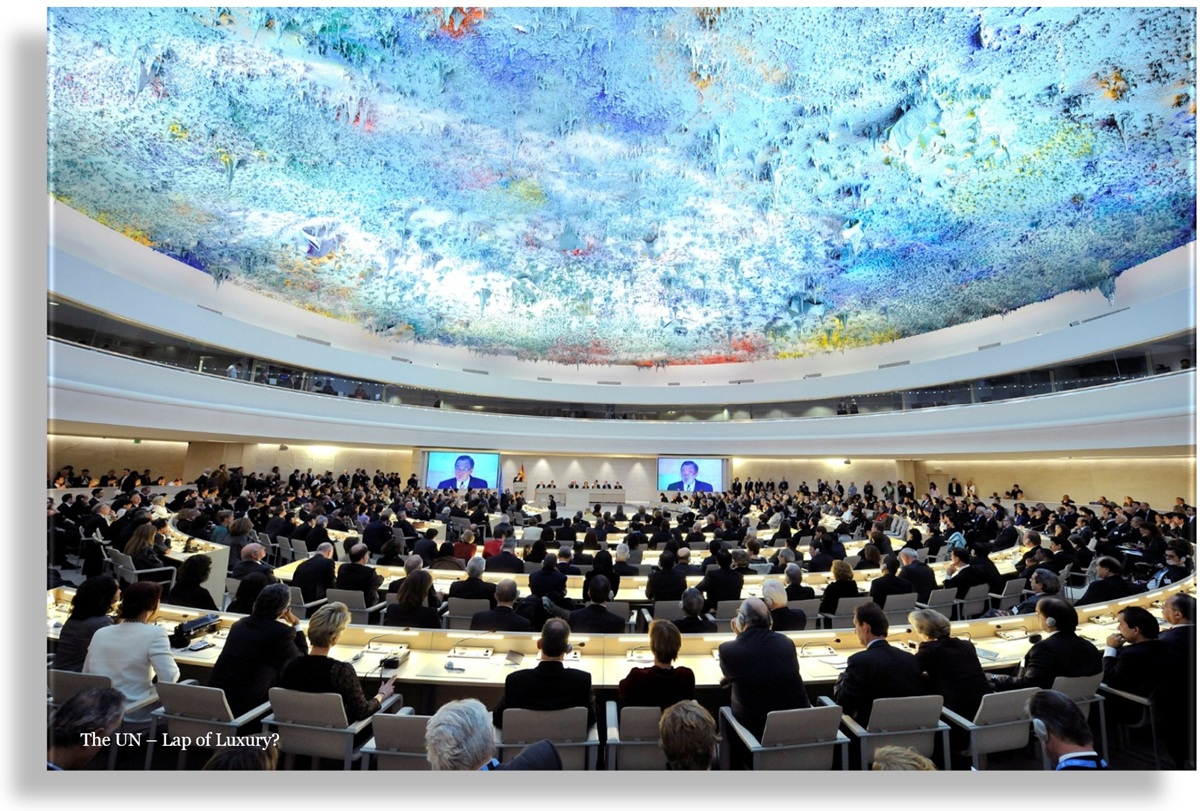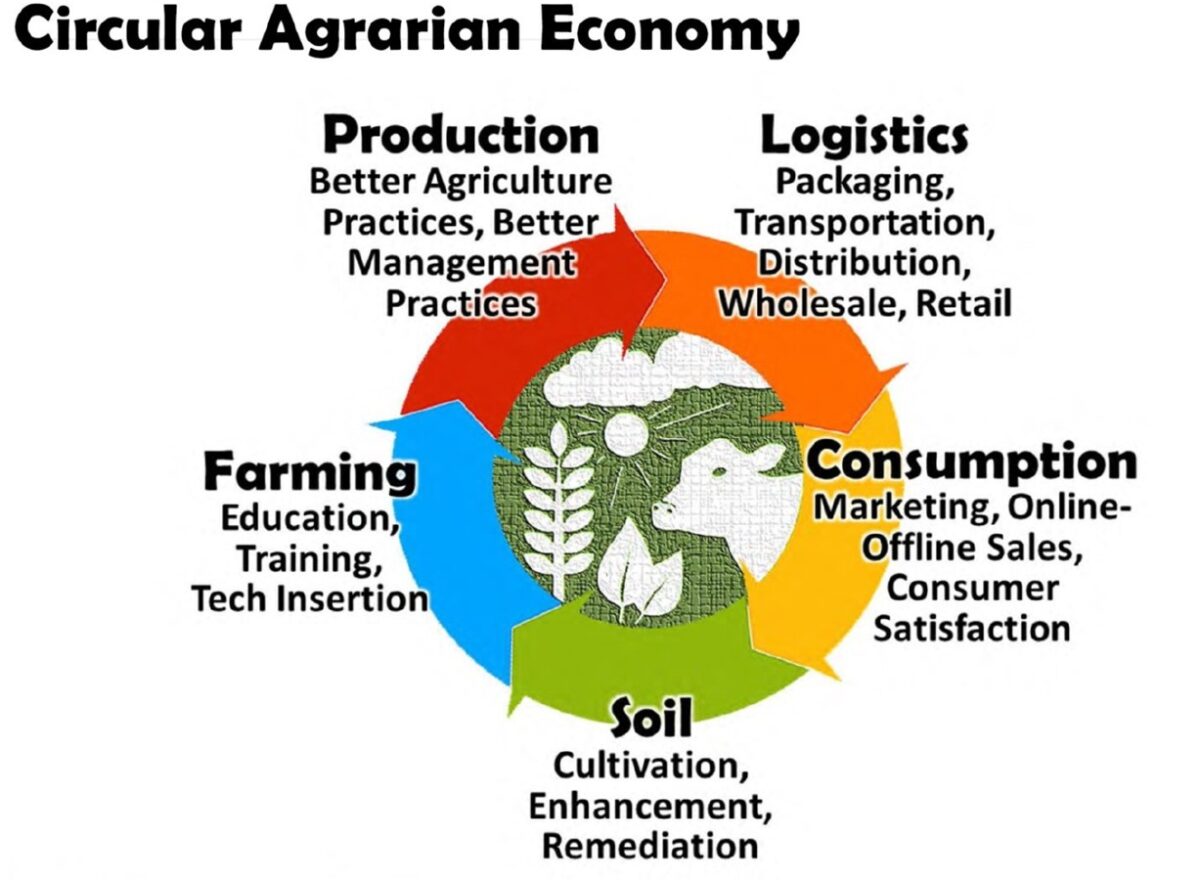Welcome to the Age of Information Overload
How the Negativity of the News Cycle Batters the Brain
Unless you have been stranded on the International Space Station, or living under the proverbial rock, there’s a whole lot of information bombarding us every waking minute. It’s nearly impossible to avoid it, even if you’ve sworn off watching the news on television. Social media is packed with it along with fake news and misinformation from both sides of the aisle. Writing about all this negativity is making me tired, but my message gives me sufficient strength and purpose to share my perspective. I say it’s part of the human condition for the 21st Century.
I’ve included some additional books and perspectives on which I based my conclusions, but I am certainly no expert on anything other than how psychology works in marketing. But here’s my two and two-thirds cents, nonetheless.
In today’s fast-paced, information-rich world, individuals are constantly bombarded with news from various sources. This steady influx of information includes a significant amount of negative news, encompassing everything from global conflicts and natural disasters to economic downturns and societal injustices. Then there are all of the negative political ads, bashing one candidate or another. It sickens me and a whole lot of other people.
Such exposure can profoundly affect the human psyche, triggering a cascade of cognitive, emotional, and physiological responses. Understanding how the human brain typically reacts to negative news or frustration at current events is crucial for developing effective coping strategies and maintaining mental well-being.
The human brain has evolved to prioritize survival, reacting swiftly to perceived threats. This evolutionary mechanism, the fight-or-flight response, is deeply embedded in our neural architecture. When confronted with negative news, the brain’s initial reaction is to activate this response, preparing the body for immediate action. This process involves the amygdala, a region of the brain responsible for processing emotions, sending distress signals to the hypothalamus, which in turn triggers the release of adrenaline. This chain reaction results in physical changes such as increased heart rate, muscle tension, and rapid breathing, all aimed at readying the body to either confront or flee from danger.
However, the modern context of a 24/7 news cycle means that the brain is often exposed to far more negative stimuli than our ancestors ever encountered. This constant exposure can lead to emotional exhaustion, desensitization, and chronic stress. Moreover, the brain’s ability to process and react to this deluge of information involves several stages, each with distinct cognitive, emotional, and physiological components.
The initial stage involves rapid information processing, where the brain quickly evaluates the details of the news and assesses its potential impact. This is followed by a phase of cognitive dissonance, where the brain attempts to reconcile the new, often shocking information with existing beliefs and experiences. Emotional responses such as shock, fear, sadness, anger, and empathy emerge as the brain processes the news further. Finally, as the reasoning part of the brain re-engages, individuals adapt to the situation and decide on a course of action, whether it be ignoring the news, taking proactive steps, or continuing to observe.
This paper delves into the intricacies of these responses, exploring how the human brain processes negative news, the emotional and physiological reactions that follow, and the subsequent actions taken to manage these stressors. By understanding these mechanisms, we can better equip ourselves to handle the emotional and psychological impacts of negative news and maintain our mental health in an ever-changing world.
Cognitive Response
When negative news is encountered, the cognitive response begins with the initial stage of information processing. This involves the brain receiving and deciphering the details of the news to understand the situation. The cognitive brain, particularly the pre-frontal cortex, engages in making rapid evaluations of the information presented. This involves a complex neural process where the brain filters the incoming data, identifies relevant details, and organizes them into a coherent narrative. The brain draws on prior knowledge and experiences to make sense of the new information, integrating it into an existing framework of understanding. This process is essential for creating a mental representation of the event, allowing for a structured approach to the incoming negative information.
Simultaneously, the brain undertakes a swift assessment of the potential impact of the negatives. This involves evaluating both the direct and indirect consequences of the event. The brain assesses whether the news affects personal safety, financial stability, social connections, or overall well-being. For instance, in the context of a small country being invaded, the brain would rapidly consider any personal connections to the affected area, such as friends or family members residing there, and evaluate the potential ramifications on one’s immediate environment and extended social network. This assessment is not only concerned with immediate personal implications but also considers broader societal impacts, such as economic stability and geopolitical repercussions.
The brain’s evaluation mechanism operates under a heightened state of alertness, driven by the amygdala’s activation during the initial emotional response. This heightened state enhances the brain’s ability to process information quickly and efficiently, ensuring that the individual can make informed decisions about how to respond. The cognitive response is thus characterized by a dynamic interplay between information processing and impact assessment, facilitated by the brain’s ability to integrate new information with existing knowledge and evaluate its significance in a broader context. This comprehensive understanding enables individuals to navigate the complexities of negative news with a more informed and balanced perspective, ultimately guiding their subsequent actions and emotional responses.
Emotional Response
The emotional response to negative news unfolds in several stages, each characterized by distinct emotional states that the brain and body experience. Initially, the individual may feel a profound sense of disbelief or shock. This immediate reaction is a defense mechanism employed by the brain to buffer the impact of distressing information. The sudden influx of shocking news can be so overwhelming that the brain temporarily denies its reality, allowing the individual a brief respite to absorb the gravity of the situation.
As the initial shock begins to subside, the body’s ‘fight-or-flight’ response is activated, releasing adrenaline. This physiological response manifests as fear and anxiety, with the individual experiencing heightened alertness, tension, and physical symptoms such as a racing heart or trembling. The adrenaline rush is the body’s way of preparing to respond to perceived threats, and these sensations can persist until the individual begins to process the news more fully.
Following the adrenaline surge, other stress hormones like cortisol are released, which can lead to feelings of sadness or depression. This stage of the emotional response is marked by a deeper emotional processing of the news, as the reality of the situation sets in. The individual may experience a pervasive sense of despair, which can be both emotionally and physically draining.
Anger and outrage often follow as the individual grapples with the news. These emotions can serve as a protective mechanism, masking the underlying fear or sadness. Anger can provide a sense of control or the impetus to seek justice or change, channeling emotional energy into action. The intensity of these emotions can vary, depending on the individual’s connection to the news and their capacity for emotional regulation.
In many cases, the emotional response also includes feelings of empathy and compassion. The individual may feel a deep sense of connection to the victims, leading to altruistic behavior and a desire to help. This compassionate response is an integral part of the human emotional repertoire, fostering social bonds and collective resilience.
However, emotional reactions to negative news are rarely straightforward. They often involve a complex interplay of various emotions, creating a multifaceted emotional landscape that can be challenging to navigate. These mixed emotions can include simultaneous feelings of shock, fear, sadness, anger, and empathy, making it difficult for the individual to identify and manage each emotion. This complexity underscores the need for emotional awareness and coping strategies to address the broad spectrum of emotional responses elicited by distressing news. Understanding these emotional processes can aid in developing resilience and maintaining psychological well-being in the face of constant negative stimuli
Physiological Response
The physiological response to negative news is intricately linked to the body’s instinctual survival mechanisms, often characterized by a series of automatic, involuntary reactions. These reactions are primarily orchestrated by the sympathetic nervous system, which prepares the body to either confront or escape perceived threats.
When negative news is received, the body’s initial response is to tighten the muscles. This muscle tension is part of the fight-or-flight response, a primal reaction designed to prepare the body for immediate physical action. Muscles throughout the body, particularly those in the neck, shoulders, and back, may contract, creating a sensation of stiffness or discomfort. This response is aimed at readying the body for either defensive maneuvers or rapid movement.
Simultaneously, the heart rate increases as a result of adrenaline being released into the bloodstream. Adrenaline, also known as epinephrine, is a hormone that enhances the body’s ability to respond quickly and effectively to danger. The increased heart rate ensures that more blood, and consequently more oxygen, is delivered to vital organs and muscles, thereby enhancing physical performance and alertness.
Breathing patterns also change during this response. Individuals may notice their breathing becoming more rapid and shallow. This alteration in breathing is designed to increase oxygen intake, providing the body with the necessary resources to sustain heightened physical activity. However, this change can also lead to feelings of breathlessness or hyperventilation, particularly if the stressor persists.
Stress has a significant impact on the digestive system. The body’s prioritization of immediate survival over less critical functions means that normal digestive processes are often disrupted. This can result in sensations of nausea, stomach upset, or even a temporary cessation of digestion, as the body diverts energy away from the gastrointestinal system to support more critical survival functions.
Focus and concentration are also affected by the physiological response to stress. Heightened arousal can have varying effects on cognitive focus. For some, it may narrow their attention to a pinpoint, allowing them to concentrate intensely on the immediate threat or problem. For others, the stress response can scatter their focus, making concentrating on any task difficult. This divergence in focus is a result of the brain’s attempt to process and prioritize multiple streams of information simultaneously, which can lead to either hyper-focus or cognitive overload.
Overall, the physiological response to negative news is a complex, multifaceted process that involves the coordination of various bodily systems to prepare for and manage perceived threats. Understanding these responses can help individuals recognize the signs of stress and develop strategies to manage their physiological reactions effectively, thereby maintaining both physical and mental well-being in the face of constant negative stimuli.
Why This Happens and Its Evolutionary Significance
The human brain has evolved to react quickly to threats or news that could indicate potential risk, serving as an evolutionary safeguard meant to prepare us for action. In our ancestral environment, immediate physical responses to threats were essential for survival. The fight-or-flight response is an ancient, automatic mechanism that prepares the body for immediate action. When confronted with negative news, this response is triggered almost instantaneously. The pre-frontal cortex, responsible for complex cognitive behaviors such as decision-making and social conduct, temporarily goes “offline” to allow the more primal parts of the brain to take over. This shift prioritizes quick, instinctual reactions over deliberate reasoning, which is crucial in life-or-death scenarios.
However, modern media, characterized by a 24/7 news cycle, exposes individuals to a constant stream of negative information far more frequently than our ancestors ever encountered. This continuous exposure can lead to emotional exhaustion and desensitization. Understanding these processes has practical applications. Being aware of your responses can help you manage your emotional and physiological reactions more effectively, allowing for healthier engagement with such news.
Cognitive Processing and Emotional Reactions
The initial stage of response involves the brain deciphering the details of the news and making quick evaluations. This rapid assessment helps determine the immediacy and severity of the threat. The subsequent stage involves the brain making sense of the new information, often resulting in cognitive dissonance. This is the brain’s attempt to reconcile the new, shocking information with existing beliefs, sometimes drawing on past experiences, whether accurate or not. This process is essential for creating a coherent narrative and maintaining a stable worldview.
Emotionally, individuals might first experience shock and denial, as the brain employs defense mechanisms to buffer the immediate impact of distressing news. This is followed by a surge of fear and anxiety, driven by the body’s release of adrenaline, preparing the individual for fight-or-flight responses. As the initial adrenaline rush fades, other stress hormones like cortisol come into play, leading to feelings of sadness and despair. Anger and outrage often emerge as the individual processes the news further, serving as protective mechanisms that can mask underlying fear or sadness. Simultaneously, feelings of empathy and compassion may arise, reflecting a deep emotional connection to the victims and a desire to help.
Adaptation and Taking Action
As the reasoning brain (pre-frontal cortex) re-engages, cognitive functions return, allowing for a clearer understanding of the situation and potential adaptation. The brain reviews the new information and assesses how it impacts the individual directly or indirectly. This stage involves a transition from an emotionally driven response to a more rational and deliberative approach. The brain integrates the new information, reassesses beliefs and expectations, and develops new coping mechanisms.
Eventually, individuals take action, whether it is to ignore the situation, get involved, prepare for it, or continue to observe. This decision-making process helps stabilize the emotional and physiological states, allowing the body to return to normal functioning. Taking action is a coping mechanism that helps regain a sense of control and manage the stress and emotional upheaval triggered by negative news. This comprehensive understanding of the cognitive, emotional, and physiological responses to negative news underscores the complexity of human reactions and highlights the importance of developing effective coping strategies to maintain mental well-being in a constantly changing media landscape.
References
Here are some suggested sources that can be valuable references for this paper:
Scientific Periodicals
- Nature Neuroscience
-
- A leading journal that publishes high-quality research on the brain and nervous system, including studies on the neurological responses to stress and negative stimuli.
- Journal of Cognitive Neuroscience
-
- Offers insights into the cognitive processes of the brain, including how it handles information processing and emotional responses.
- Psychological Science
-
- Publishes cutting-edge research on a wide array of psychological phenomena, including stress, anxiety, and coping mechanisms in response to negative news.
- Neuroscience & Biobehavioral Reviews
-
- Reviews research on the interplay between brain function and behavior, particularly in response to stress and emotional stimuli.
- Annual Review of Psychology
-
- Provides comprehensive reviews of significant developments in the field of psychology, including stress responses and cognitive processing.
Textbooks
- “The Principles of Neural Science” by Eric Kandel, James Schwartz, and Thomas Jessell
-
- A seminal textbook offering detailed explanations of how the brain processes information and reacts to various stimuli.
- “Cognitive Psychology” by Ulric Neisser
-
- Covers the fundamentals of how the brain processes information, including the cognitive mechanisms involved in response to negative news.
- “Handbook of Stress: Theoretical and Clinical Aspects” edited by Leo Goldberger and Shlomo Breznitz
-
- Provides a thorough overview of stress research, including physiological and psychological responses to stressors.
- “Emotion Regulation: Conceptual and Practical Issues” by Adrian Wells
-
- Discusses how individuals manage and regulate their emotional responses to various stimuli, including negative news.
Magazine Articles
- Scientific American
-
- Features articles on the latest scientific discoveries and research, including those related to brain function, stress, and emotional responses.
- Psychology Today
-
- Publishes articles on a wide range of psychological topics, including coping with stress, anxiety, and the impact of media on mental health.
- The Atlantic
-
- Provides in-depth articles on the intersection of psychology, neuroscience, and societal issues, often exploring how people react to current events and media.
Online Resources
- PubMed
-
- A comprehensive database of biomedical literature, including research articles on neuroscience, psychology, and the effects of stress.
- Google Scholar
-
- Offers access to a vast array of scholarly articles, theses, books, and conference papers, including studies on cognitive and emotional responses to negative news.
- PsycINFO
-
- A database of psychological literature that includes articles, books, and dissertations on various aspects of psychology and behavioral science.
Using these resources, you can gather a wide range of scientific evidence to support the exploration of how the human brain reacts to negative news and current events.










